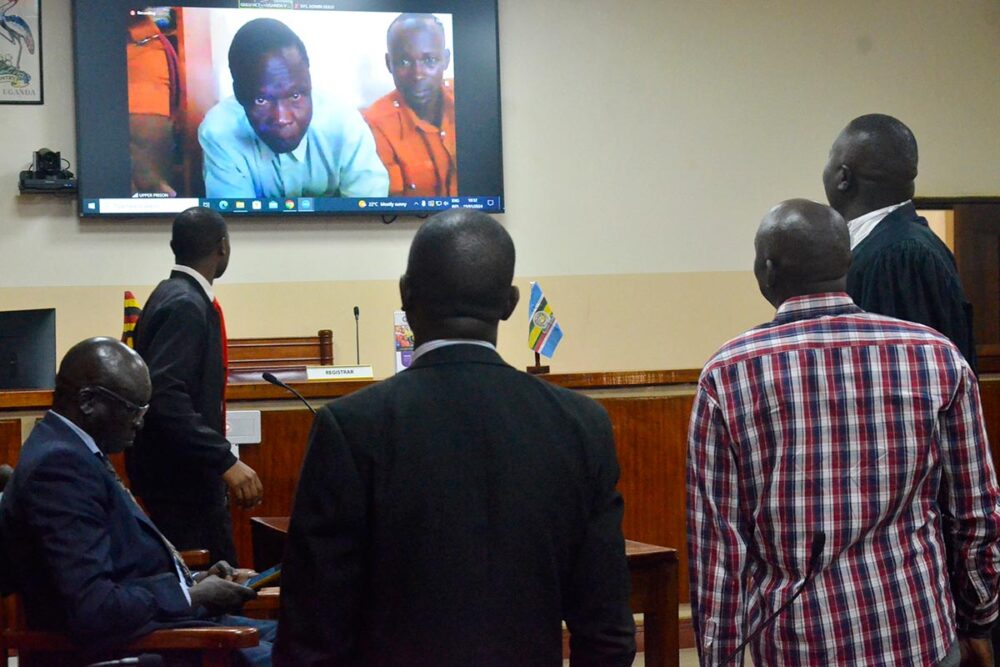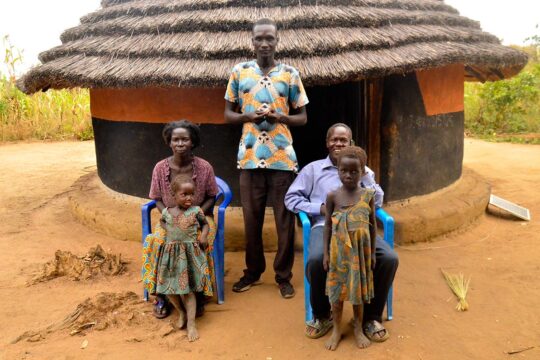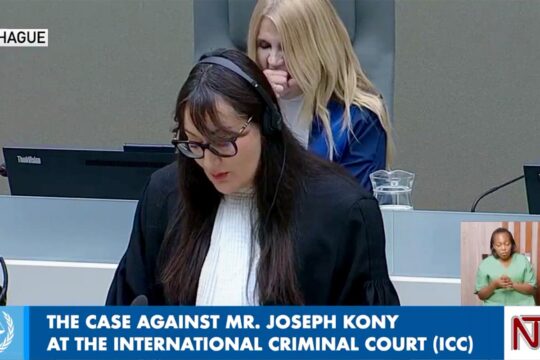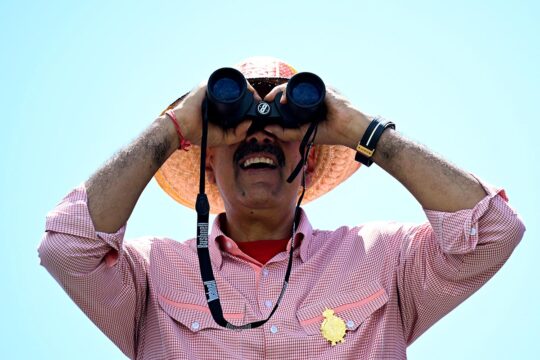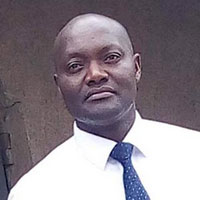Appearing from the country’s maximum security prison of Luzira in the capital Kampala, Thomas Kwoyelo had an inquisitive look on his face as his eyes darted across the half empty court room located in Gulu, north of Uganda. Represented in court by a chain of senior lawyers, Kwoyelo appeared in an oversized business suit, despite having been a Primary Three dropout in 1992 when he was abducted by the Lord’s Resistance Army (LRA).
In the January 19, mid-morning session, deputy registrar of the High Court Juliet Hatanga read out the litany of charges against him. First and only LRA commander on trial by a Ugandan court, he faces no less than 78 charges, including murder, pillage, cruel treatment, violence to life, outrages against the dignity of humanity, torture, rape, enslavement, imprisonment, kidnap with intent to murder, and aggravated robbery.
Before Uganda’s International Crimes Division (ICD), a panel of four judges is hearing the case that has been on and off for a record 15 years since his capture in 2008. The delays, which are hard to understand, are due to “multiple factors” and “the complicated nature of the trial”, according to the Ugandan judiciary.
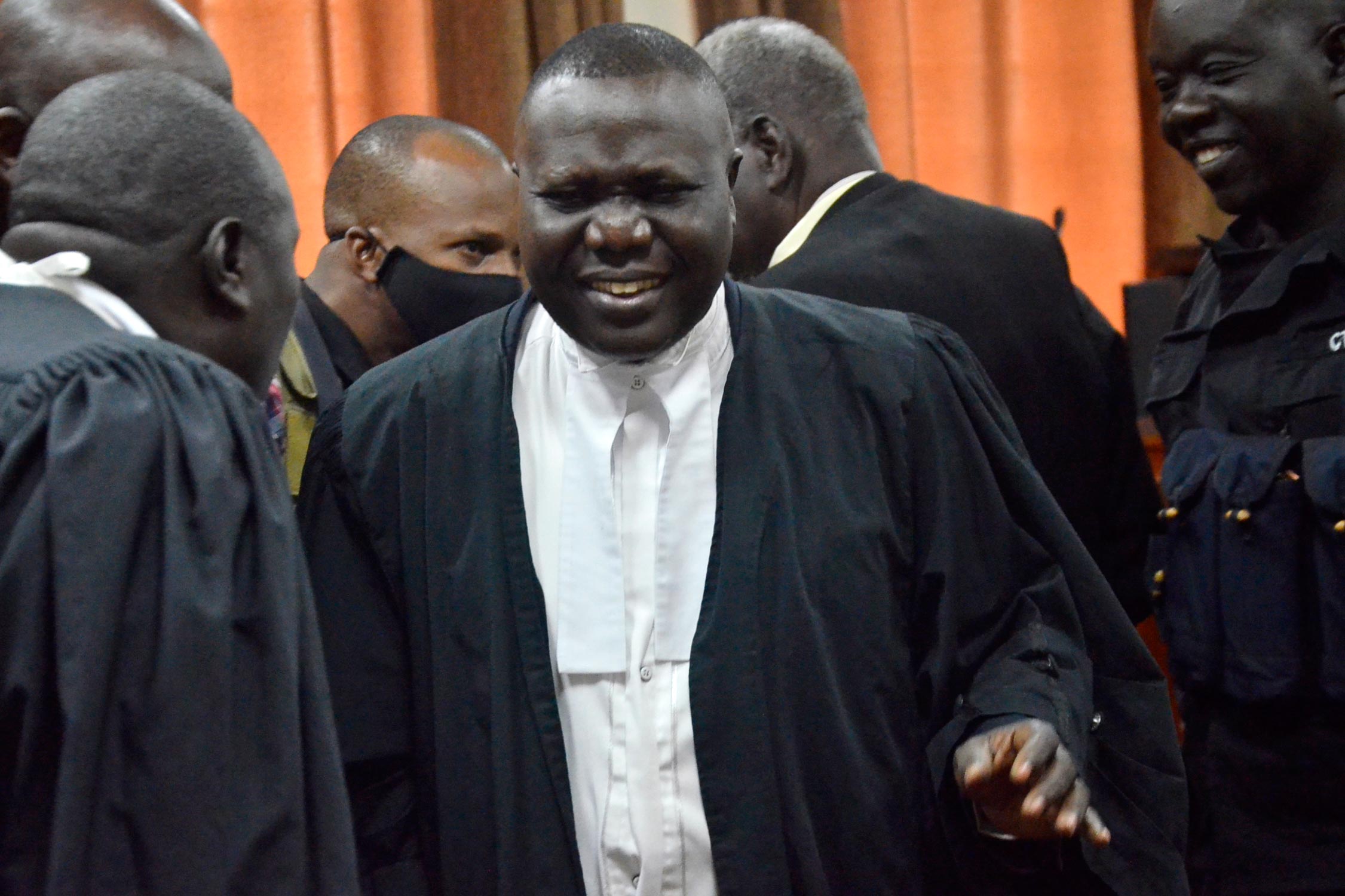
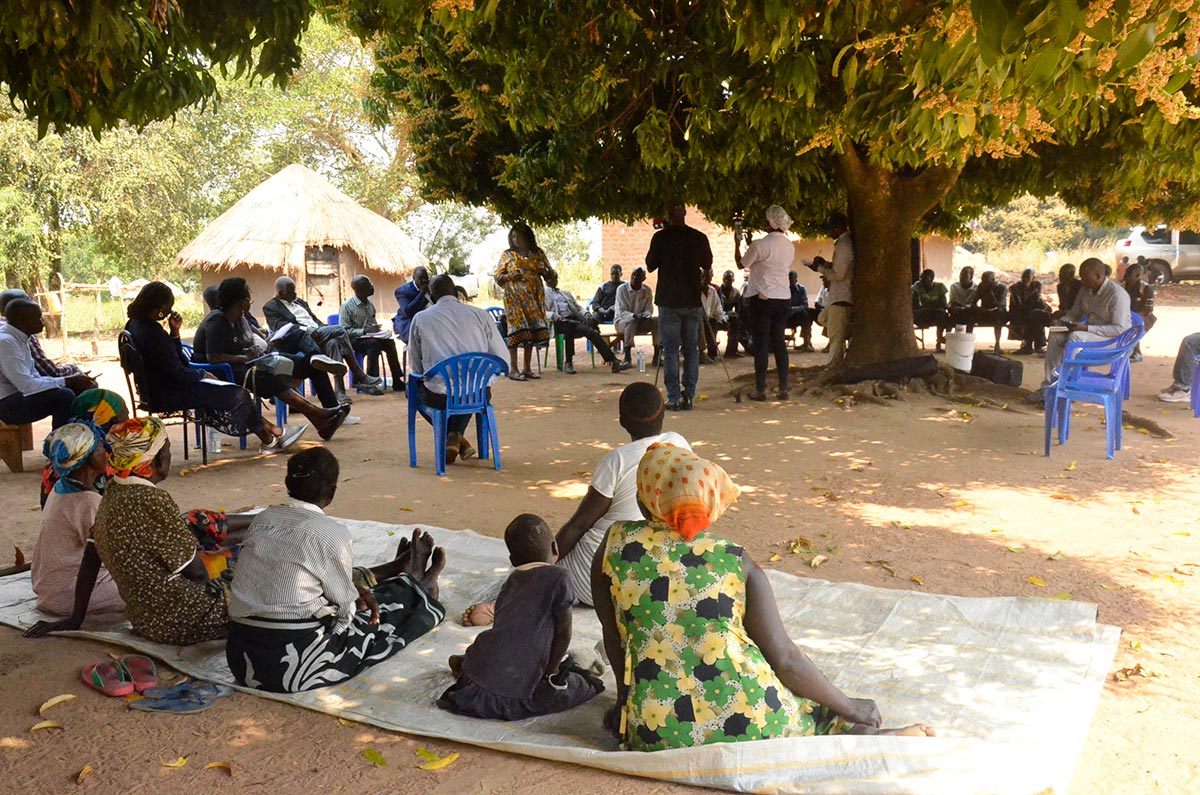
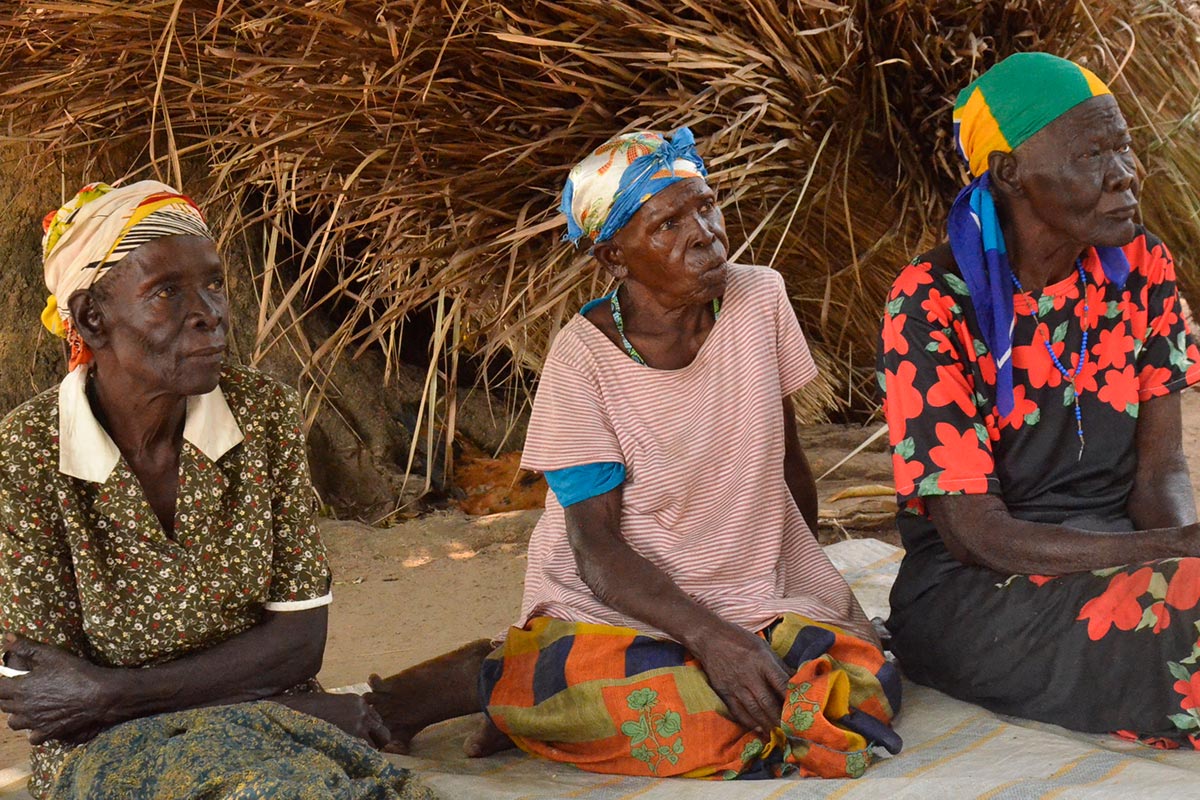
Raising awareness with apologies
This time at least something happened. After a brief court session in Gulu with no progress on the case, the court officials including Justice Susan Okalany and Justice Richard Wabwire Wejuli travelled some 70 km north for an outreach program to several villages, to meet LRA war victims, former abductees, ex-combatants and would-be defence witnesses. The villages included Abera in Pabbo, one in Kwoyelo’s rural Amuru District and in a district further north.
With scattered, mainly grass-thatched homesteads separated by small gardens of maize, sorghum, millet, bananas, beans, pawpaws, cassava, coffee and cotton, the rural part of this countryside is sparsely populated. There are fewer animals like goats and cows, with the latter used mostly for ploughing. The local population attribute this to the effects of the LRA war, when thousands of livestock were raided or driven off in a scorched earth policy.
Arriving on site, Justice Okalany started by apologizing: “I want to apologize on behalf of Uganda, and not only the judiciary, for the delayed trial of Thomas Kwoyelo. This is a very shameful thing for us as a court. I can’t cover it in any way,” he told an attentive crowd as some wiped off sweat from the tropical afternoon heat with their bare hands. Near Pabbo Township, boys were hawking fresh vegetables and fruit near the venue where the seemingly strange delegation of judges and lawyers sat in comfort.
Justice Okalany nevertheless pointed to some of the challenges that have led to the delay of the former LRA soldier’s trial. “There are some explanations, like Kwoyelo challenging the Amnesty Act before the Constitutional Court on why some of his superiors were granted amnesty and his request was not granted. This took some time to be determined. Then there was Covid-19, and challenges of resources can’t be ignored,” Judge Okalany said through an interpreter. “We hope to conclude this matter around mid-year, but I really apologise for the delay; it’s a verdict on our justice system.”
Citing accounts by the prison’s officials, she told the meeting that Kwoyelo at one time tried to “commit suicide” because of frustrating delays of his case.
“But the good thing is that the case has come to the last leg of its conclusion after the court recently ruled that Kwoyelo has a case to answer by upholding 78 counts out of the 93 that had been brought against him. So subject to availability of resources, this matter should be closed by mid this year,” added Justice Wabwire, with this last part sounding less reassuring.
Exhumations and burials also delayed
Hatanga, the new registrar, said the trial has also delayed the exhumation and reburial of bodies of war victims, whose relatives wanted to relocate from the internally displaced persons camps scattered in Northern Uganda. The government temporarily shifted thousands of people in 1996 to protect them against rebel attacks. Now the families want proper funerals back in their original homes. But Hatanga said the government could not allow exhumation of the bodies before Kwoyelo’s trial is completed, as the graves had been labelled “crime scenes”.
Kwoyelo’s main lawyer, Caleb Alaka, told Justice Info that his team plans to invite over 50 witnesses in his defence. “Our visit here is to update the population on the progress of the case as well as getting witnesses or people with vital information that we can use in defence of Thomas Kwoyelo,” said the seasoned criminal lawyer.
Local residents, speaking in the local Luo language, expressed concern about their safety if they come out as witnesses. “Coming out to testify (in defence) of Kwoyelo, won’t we be perceived as sympathizers to what the LRA did?” asked one of the elderly local residents who declined to be named because of the sensitivity of the case.
“Rather we stay away from the case”
“Because of what happened, people do not want to be connected in any way to that war. Many families including mine were destroyed and we live in trauma,” Moses Akena, an uncle to Thomas Kwoyelo and one of the most senior civil servants in Pabbo, told Justice Info. “Some of us were arrested and detained for a long time because of Kwoyelo. Rather we stay away from the case.” He added that “stereotype and stigma” has taken root in the communities because of the perception of Kwoyelo’s role in the LRA, despite calls by the community leadership for re-integration and harmony between former LRA combatants who have renounced the rebellion and the general population.
In Kwoyelo’s rural district, members of the community connect through village paths to reach out to their friends and relatives in this rather idyllic scenery, where birds sing to the enchantment of those visiting this part of Uganda for the first time and the locals welcome everyone with a wide but curious smile. Perhaps the Kwoyelo trial seems timeless to them.
Read the second part of this article: “Kwoyelo was born and grew up here”.


